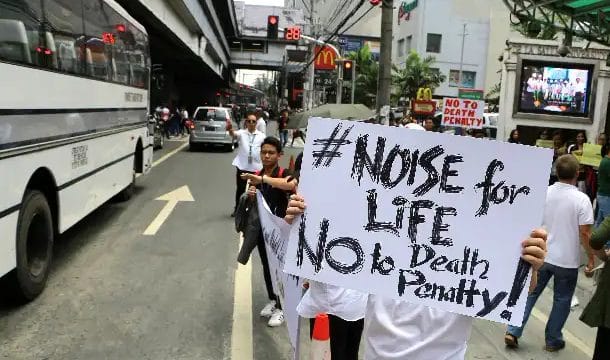
MANILA (UCAN): At least three anti-crime three groups in the Philippines are backing fresh calls to reinstate the death penalty for heinous crimes and drug lords.
The Federation of the Anti-Illegal Drugs Campaign, together with the Anti-Crime Council of the Philippines and the Fight Drug Trade Movement, issued a joint statement on June 26 saying they would join efforts to push president-elect, Ferdinand “Bongbong” Marcos Jr., to reinstating capital punishment, which was abolished in 2006 by former president, Gloria Arroyo.
“Our group has reached the conclusion that we need the death penalty to curb rising heinous crimes in the Philippines. Capital punishment provides benefits to society such as instilling fear into criminals, especially in a country where discipline is wanting,” the groups said.
The call came after a recent survey revealed that more than 50 per cent of the population believed the death penalty was effective in preventing heinous crimes such as murder, rape and the drug trade.
An eye for an eye is still very much present in the mindset of many of our people. We need to exert more effort to let our people understand … and help them see the dignity of the human person
Bishop Joel Baylon
In March 2021, allies of outgoing president, Rodrigo Duterte, sought to table a bill in Congress reintroducing the death penalty. The bill is yet to be debated and it is expected that the new president will be called upon to push for its passage. Previous attempts have stalled.
Logica, an academic group that sponsored the recent nationwide survey, said 54 per cent of Filipinos believed the death penalty should be reinstated to solve the proliferation of heinous crimes.
“The majority in our country believe in the effectiveness of the death penalty in preventing heinous crimes because fear is needed to bring order in Philippine society,” Logica spokesperson Andrew Carbonel remarked.
He said the survey included even the “most Catholic” regions like Cebu in the Visayas and the Bicol region in southern Luzon despite Catholic teaching being against capital punishment.
“Perhaps the people want actual results in curbing the crime rate. They think this can be achieved through the death penalty,” Carbonel added.
As we celebrate the 500 years of Christianity in the Philippines. The Chaplaincy to Filipino Migrants organises an on-line talk every Tuesday at 9.00pm. You can join us at:
https://www.Facebook.com/CFM-Gifted-to-give-101039001847033
Sadly, many of our countrymen today believe that actual results are more important than values. Pragmatism is the new normal. Thus, if killing criminals would result in creating fear or curbing the country’s crime rate, then the death penalty must be a good policy
Bishop Joel Baylon
The Coalition against Anti-Death Penalty, however, said the results did not reflect the sentiment of the entire nation which is generally pro-life.
“Many of us are still pro-life although we should admit that President [Rodrigo] Duterte enjoyed a positive rating because he tried to deliver his promise to solve street crimes by targeting illegal drug suspects despite his alleged human rights violations,” coalition member, Angie Duazon told, said alluding to the war on drugs in which thousands of drug suspects were murdered or shot by police, according to rights groups.
However, Bishop Joel Baylon of Legazpi, head of the Episcopal Commission on Prison Care, said clergy need to work harder to turn the views of Filipinos towards the principle of restorative justice.
“Sadly, many of our countrymen today believe that actual results are more important than values. Pragmatism is the new normal. Thus, if killing criminals would result in creating fear or curbing the country’s crime rate, then the death penalty must be a good policy,” Bishop Baylon told Radyo Veritas.
“An eye for an eye is still very much present in the mindset of many of our people. We need to exert more effort to let our people understand … and help them see the dignity of the human person,” he said.








